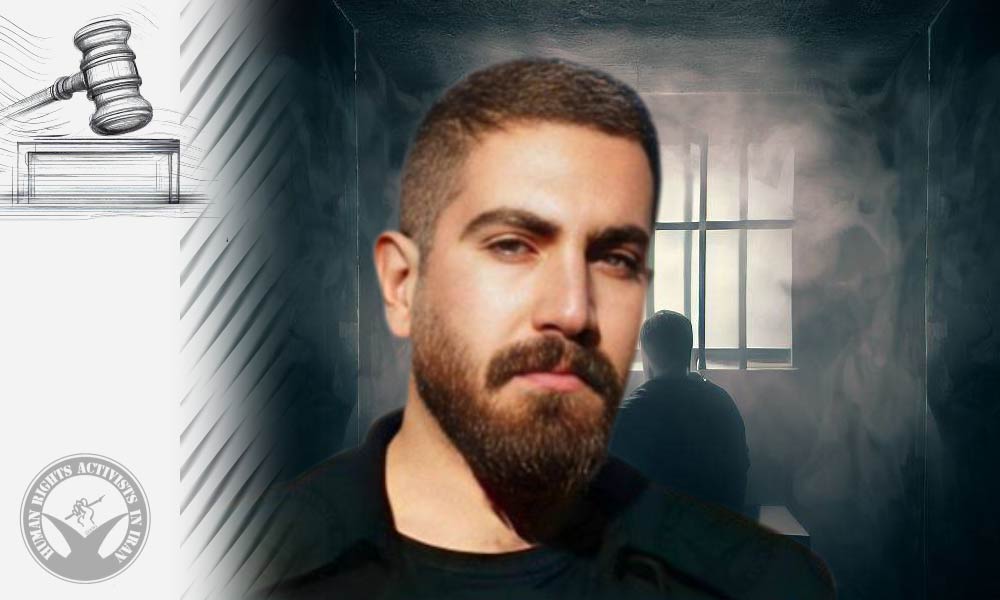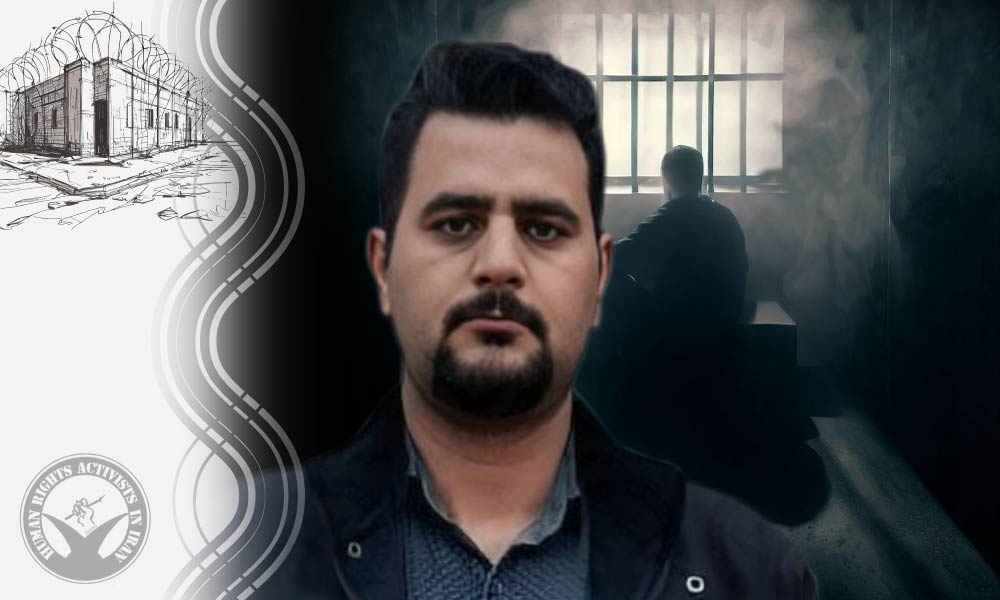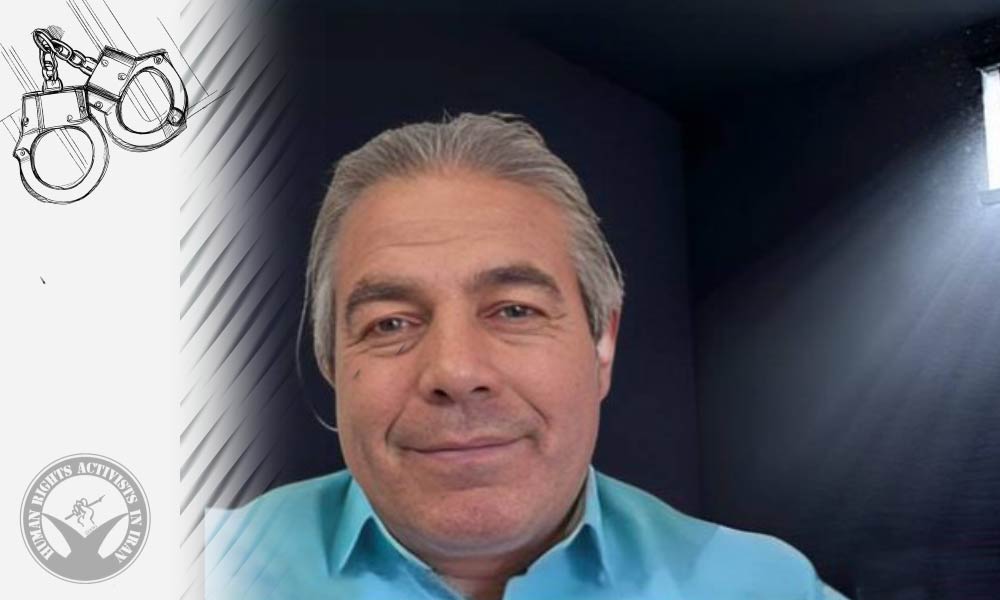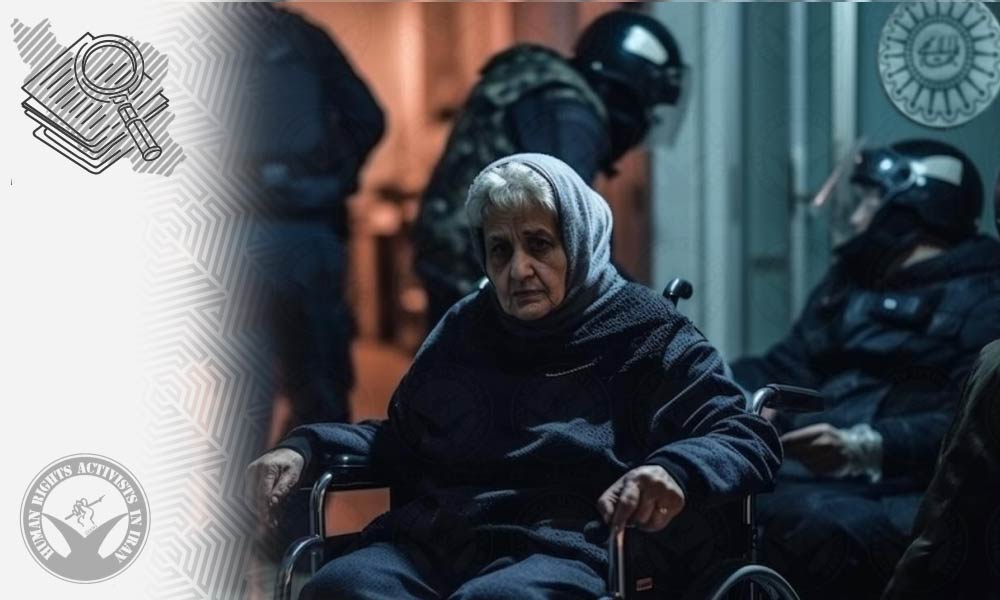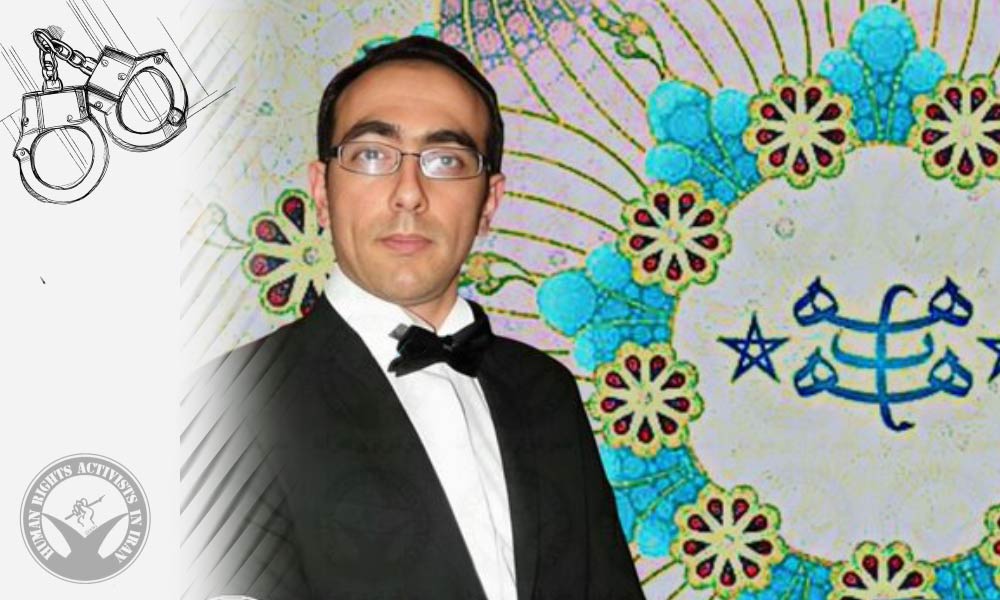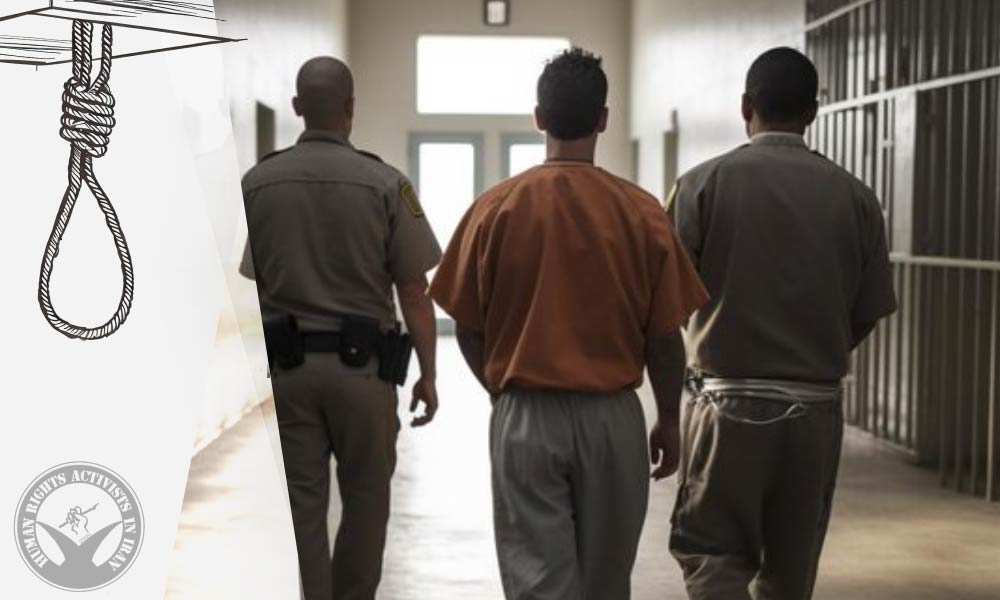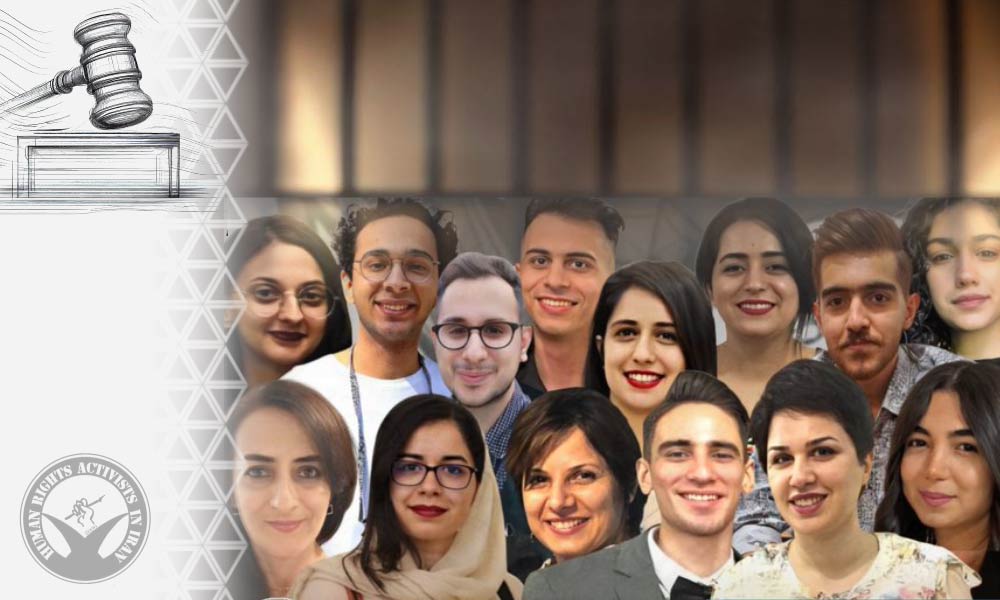HRANA News Agency – Over the last 60 days, at least 40 Baha’i citizens have been arrested by security forces, and the homes of at least 66 individuals have been searched by security forces. Additionally, during the mentioned period, 38 Baha’i citizens have been collectively sentenced to more than 133 years in prison by judicial authorities.
According to HRANA, the news agency of human rights activists in Iran, there has been a significant increase in actions against Baha’i citizens in Iran over the past 60 days.
During this period, at least 40 Baha’i citizens in six cities have been arrested by security forces. The homes of at least 66 Baha’i citizens in various cities of the country have been searched by security agents. Also, during the mentioned period, 38 Baha’i citizens have been collectively sentenced to 133 years and 9 months in prison by judicial authorities.
The identities of the forty arrested Baha’i citizens have been confirmed by HRANA as follows:
. Sahar Mohebpour, Roxana Vojdani, Setareh Ta’ami, and Bahareh Ghaderi in Shiraz;
. Vida Ahrari, Mozhgan Basiri, Shokoufeh Basiri, Jamal Ghadirzadeh, Iman Rashidi, and Ahmad Naeimi in Yazd;
. Neda Badkhsh, Arzoo Sobhanian, Yeganeh Roohbakhsh, Mozhgan Shahrezaei, Parasto Hakim, Yeganeh Aghahi, Bahareh Lotfi, Shana Shouqi Far, Negin Khademi, and Neda Emadi in Esfahan;
. Ali Bagher Kashi, Sohba Taef, Shervin Shabrakh, Nika Esmaeilpour, Babak Zeinali (Zeynali), Iman Ehsani, Eiren Rahmani, Foad Taefi, Reza Yazdi and Fahimeh Yazdi in Karaj;
. Naeim Aghdasi, Neda Mahboobi, Zhaleh Rezaei, Zhenous Shadabi, Atofeh Zahedi, Masoud Azarnoush, Zarin Ahadzadeh, Farideh Ayoubi, Noura Ayoubi in Hamedan; and
. Masoud Mahmoudi in Shirvan.
HRANA has also identified the names of sixty-six Baha’i citizens whose homes have been searched by security forces from September 23 to November 21 (covering the period from the beginning of Mehr to the end of Aban month in the Hijri Calendar). The individuals affected include:
. Roya Sheikhi, Sahar Mohebpour, Roxana Vojdani, Setareh Ta’ami, and Bahareh Ghaderi in Shiraz;
. Vida Ahrari, Mozhgan Basiri, Shokoufeh Basiri, Jamal Ghadirzadeh, Iman Rashidi in Yazd;
. Soheil Haqdoust, Hossein Fanaian, Sohrab Loghaei, Ebrahim Loghaei, Favaed Loghaei in Ghaem Shahr;
. Neda Badkhsh, Arzoo Sobhanian, Yeganeh Roohbakhsh, Mozhgan Shahrezaei, Parasto Hakim, Yeganeh Aghahi, Bahareh Lotfi, Shana Shouqi Far, Negin Khademi, and Neda Emadi in Esfahan;
. Sohba Taef, Shervin Shabrakh, Nika Esmaeilpour, and Babak Zeinali in Karaj;
. Mehran Khandel, Pouran Habibi (Khandel), Zhenous Shadabi, Akhtar Kowsari (Naeimi), Aghdas Abrar Ahadi, Fatanah Moshtag, Behnam Ayoubi, Noghreh Ayoubi, Rozita Azarnoush, Masoud Azarnoush, Zhaleh Rezaei, Farideh Ayoubi, Parviz Ma’boodi, Afshin Rashedi, Hamid Rashedi, Kiumars Rashedi, Rouhiyeh Abdi, Hamid Azizi, Ramin Moghimi, Ata Rajabi, Mozaffar Ayoubi, Enayat Takapouyi, Farhang Ma’boodi, Shoogh Angir Soroushian, Pegah Mobin, Akbar Norani, Khoshgel Rezaei, Manouchehr Ayoubi, Hassan Rezaei, Amin Moghimi, Shouja Jahangiri, Saman Khodayari, Parviz Seifi, Ziba Jahangiri, Arzoo Jahangiri, and Kaveh Bayati in Hamedan; and
. Masoud Mahmoudi in Shirvan.
A Baha’i citizen residing in Hamedan, in an interview with HRANA, described the conduct of security forces during the search of homes as “violent,” stating, “Security forces lifted the ceramic tiles and floorings of houses, inspected the feathers of household birds, and even tore apart sofas. Confiscation of cash, gold, and valuable items including property and vehicle documents was another form of harassment by the security forces during these raids.”
The Baha’i International Community, headquartered in Geneva, has reacted to the recent developments and increased pressure on this community with a statement. In a section of this community’s news statement addressing the home searches, it is stated, “Houses of five elderly women aged between 70 to 90 years in Hamedan were raided.
One of these individuals suffers from Alzheimer’s disease, and another was quickly transferred to the hospital’s intensive care unit due to distress and anxiety following the attack on her home. In another case, the door of an 82-year-old woman’s house was broken, and her home was searched and ransacked in her absence. Husbands of two of these women were among the more than 200 Baha’is who were executed by the Iranian government after the Islamic Revolution of 1979.”
During this period, 38 Baha’i citizens named Sirus Zabihi Moghaddam, Shahdokht Khanjani, Noushin Misbah, Golnoosh Nasiri, Farideh Moradi, Saeedeh Khozouei, Saba Safidi, Iraj Shokouh, Samira Ebrahimi, Pedram Abhar, Arsalan Yazdani, Nasim Sabeti, Azita Foroughi, Roya Ghaane Azabadi, Soheila Ahmadi, Hassan Salehi, Vahid Dana, Saeed Abedi, Sanaz Tafazoli, Shadi Shahidzadeh, Mansour Amini, Ataollah Zafar, Velayat Ghadamian, Bita Haghighi, Sanaz Hekmat Shoar, Mani Gholinejad, Negar Darabi, Sam Samimi, Mahsa Fathi, Samieh Gholinejad, Mojir Samimi, Anis Sanaei, Afananeh Nematian, Basir Samimi, Hengameh Alipour, Golban Falah, Nazanin Goli, and Susan Badavam were sentenced by judicial authorities to a total of 133 years and 9 months in prison and to pay a fine of 786 million and two hundred thousand Tomans.
Additionally, some of these citizens faced supplementary punishments such as deprivation of social rights, prohibition of membership and activity in groups, political, social, and cultural parties, and prohibition of activity in cyberspace.
It is worth mentioning that in the past two months, in addition to the above, the enforcement of a five-year travel restriction for Hooshidar Zarei in Shiraz, an 8-month prison sentence for Sina Shahri in Tabriz, and a two-year prison sentence for Homayoun Khanlari in Rasht also took place.
The Baha’i community in Iran constitutes the largest unofficial religious minority in the country. However, since the change of regime in Iran in 1979, this community has been systematically marginalized and deprived of basic rights, including access to higher education and employment in public sectors. Followers of the Baha’i Faith in Iran are often subjected to arbitrary arrests, false imprisonment, property confiscation, and harassment. The Iranian government’s refusal to recognize the Baha’i Faith as a religion has led to a situation where Baha’is are deprived of many civil rights that are granted to officially recognized religious minorities, exacerbating their challenges and vulnerabilities in Iran.
Since the establishment of the Islamic Republic of Iran, hundreds of Baha’is have been executed or reported missing, while thousands have faced arrests and various penalties, including property confiscation and ongoing deprivations.



